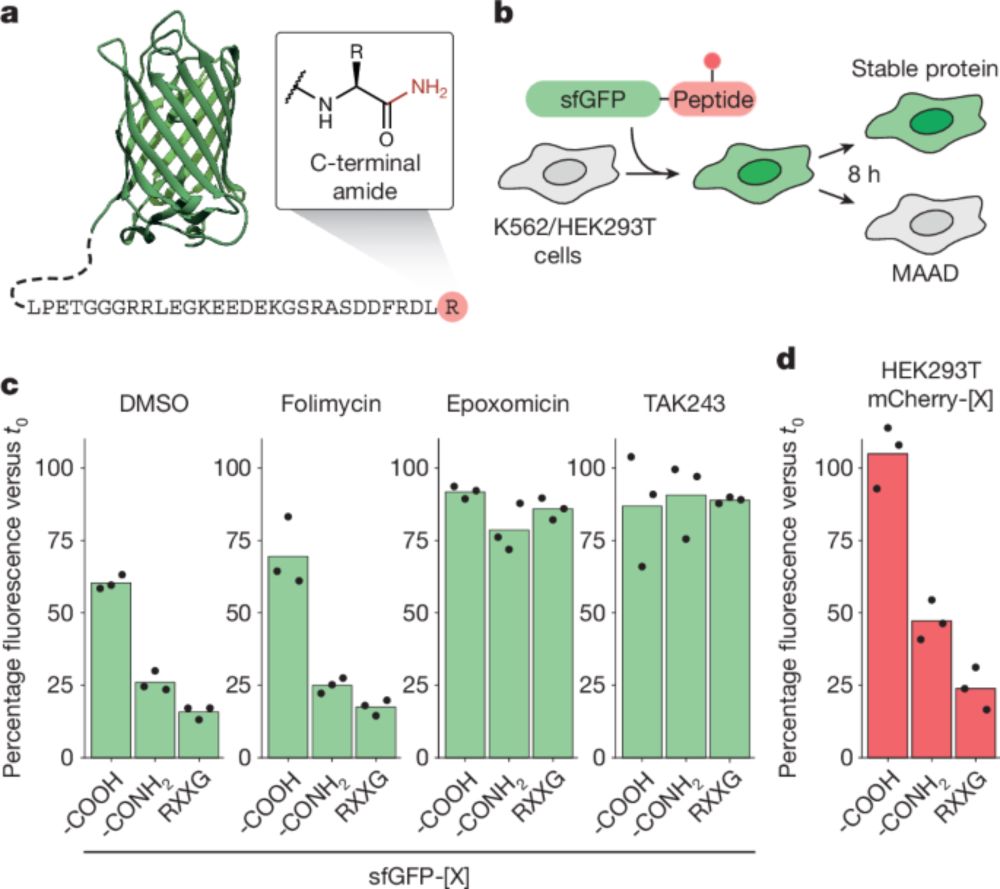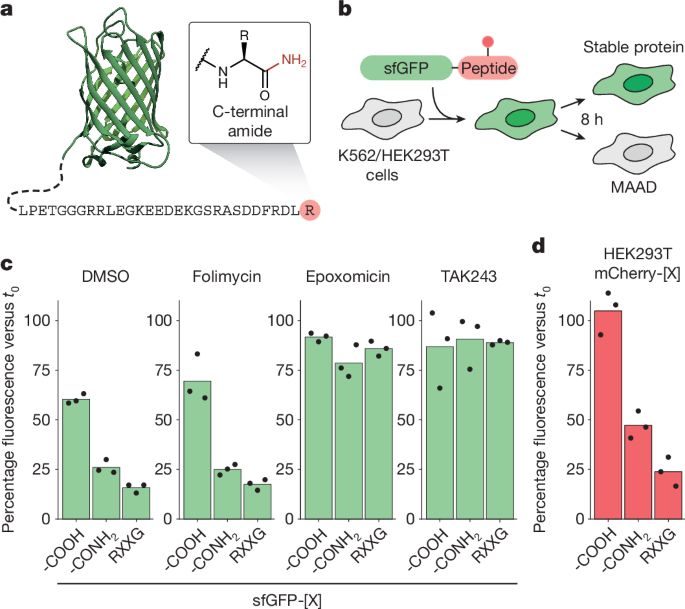@jeffreybode.bsky.social
It's finally out – actually out and in print! Many thanks to @jcornlab.bsky.social @matthiasmuhar.bsky.social @jakobfarnung.bsky.social and all the fantastic collaborators. What started as pure curiosity lead to an amazing find!
www.nature.com/articles/s41...
www.nature.com/articles/s41...

C-terminal amides mark proteins for degradation via SCF–FBXO31 - Nature
SCF–FBXO31 scans proteins for C-terminal amidation and marks them for subsequent proteasomal degradation.
www.nature.com
February 12, 2025 at 8:23 PM
It's finally out – actually out and in print! Many thanks to @jcornlab.bsky.social @matthiasmuhar.bsky.social @jakobfarnung.bsky.social and all the fantastic collaborators. What started as pure curiosity lead to an amazing find!
www.nature.com/articles/s41...
www.nature.com/articles/s41...
Reposted
Very excited to highlight @jcornlab's beautiful work on the E3 ligase SCF-FBXO31, which recognizes chemically damaged proteins. Mutations in FBXO31 cause disease by substrate-rewiring, really cool. Congratulations to all authors!
rdcu.be/d7WGc
rdcu.be/d7WGc
Signs of damage that drive protein degradation | Nature
Many environmental toxins damage proteins, which then must be removed to avoid dangerous protein aggregation and disease. How cells dispose of chemically modified proteins has been unclear, but a discovery offers some clues. How the stress-response machinery eliminates damaged proteins.
rdcu.be
January 29, 2025 at 4:48 PM
Very excited to highlight @jcornlab's beautiful work on the E3 ligase SCF-FBXO31, which recognizes chemically damaged proteins. Mutations in FBXO31 cause disease by substrate-rewiring, really cool. Congratulations to all authors!
rdcu.be/d7WGc
rdcu.be/d7WGc
Reposted
scary but fascinating - cells have a degradation pathway that hunts down C-terminal scars (amides!) on damaged proteins. just wow. chemical biology plus CRISPR at its best. big congrats to all authors!
www.nature.com/articles/s41...
www.nature.com/articles/s41...

C-terminal amides mark proteins for degradation via SCF–FBXO31 - Nature
SCF–FBXO31 scans proteins for C-terminal amidation and marks them for subsequent proteasomal degradation.
www.nature.com
January 29, 2025 at 5:57 PM
scary but fascinating - cells have a degradation pathway that hunts down C-terminal scars (amides!) on damaged proteins. just wow. chemical biology plus CRISPR at its best. big congrats to all authors!
www.nature.com/articles/s41...
www.nature.com/articles/s41...

